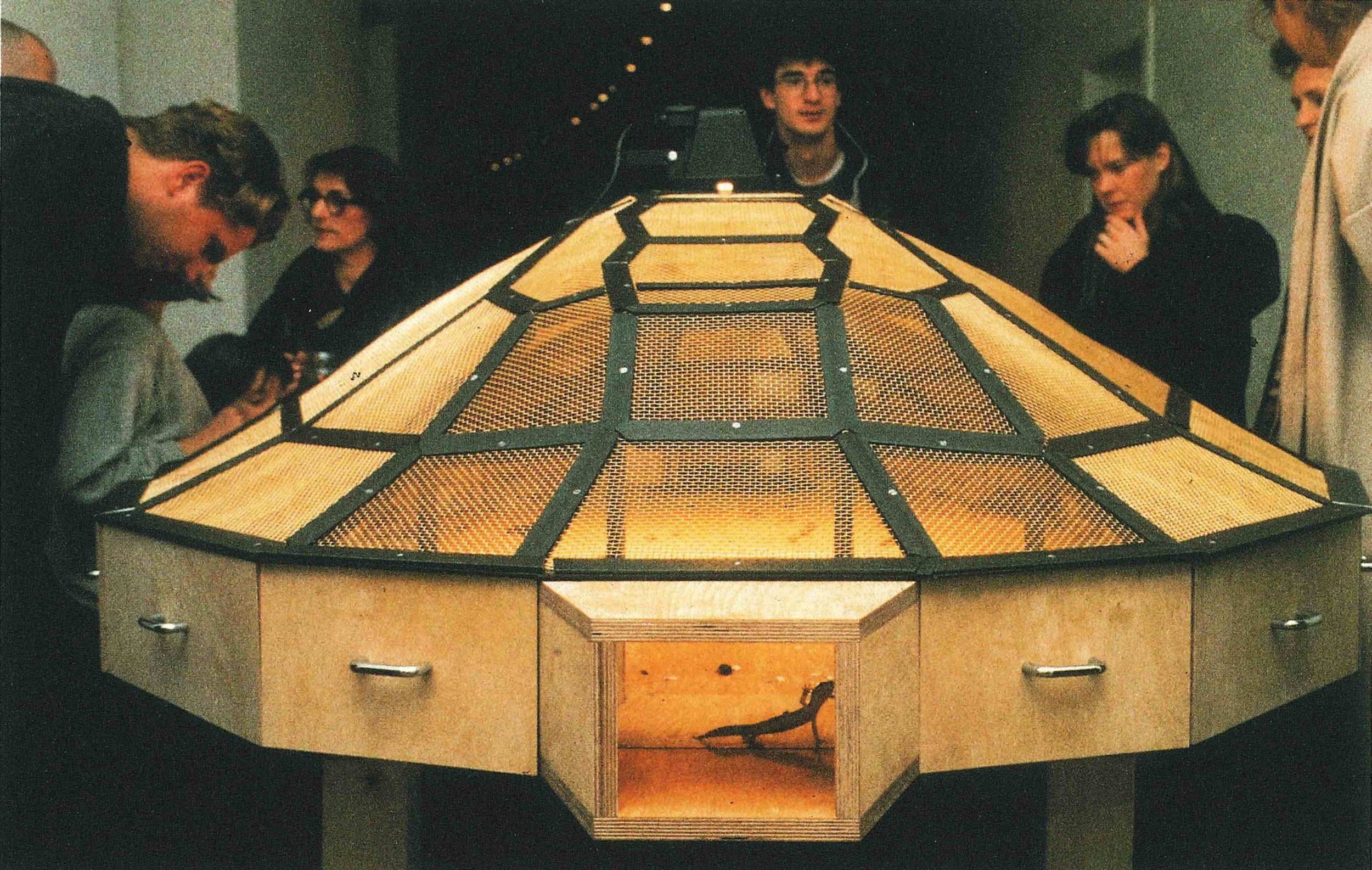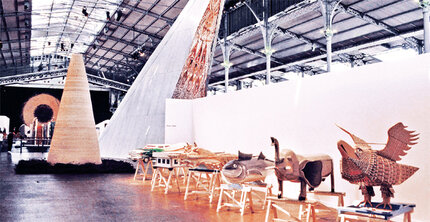
Global Mobilisation in the case of Contemporary Chinese Art in the 1980s-1990s
Contemporary Chinese artists of 1980’s and 1990’s were at the forefront of a new global artistic epoch. It was an era of confrontation, exchange, negotiation, and survival. As they entered their new norm of globalised Western hegemony, cross-cultural artists began to search for new expressions to decentralise and de-territorialise notions of identity and culture. Predicated on the ceaseless movement and exchange, Huang Yong Ping and Xu Bing brought about a new global modality that connects the hybrid expressions and aesthetics of their local identity to a transnational and global framework.

Revisiting “Magiciens de la Terre” with Rasheed Araeen through the lens of multicultural exhibition making
A critical re-examination of “Magiciens de la Terre” can offer us the necessary tools and alternatives to transcend homogenising cultural visions of the West. Rasheed Araeen’s evocation is a valuable reminder of the purpose in the confrontational process of reflection and re-examination, which allows for the capacity to re-contextualise and construct one’s interpretation and understanding of such a pivotal moment in exhibition making.

“Cities on the Move”(1997-1999) | How Hou Hanru exemplifies the moments of Contemporary Asian Art curating as it grapples with globalisation in the 1990’s
Cities on the Move ruptured the homogenising forces of the globalisation and hegemonic exhibition models of the white cube, embodied through its ever-evolving hybridisation and durational structures.

Exhibition Review of “THEN”- White Rabbit Gallery
The aim of my review was to unveil the Western ethnocentric lens that is often subjected to Chinese contemporary art and Asian Art, particularly in the context of Australia and the broader West. I hope this review will encourage you to reconsider the way you consume and understand Contemporary Asian Art, and acknowledge how it is often positioned by hegemonic cultural institutions as cultural and exotic tokens.